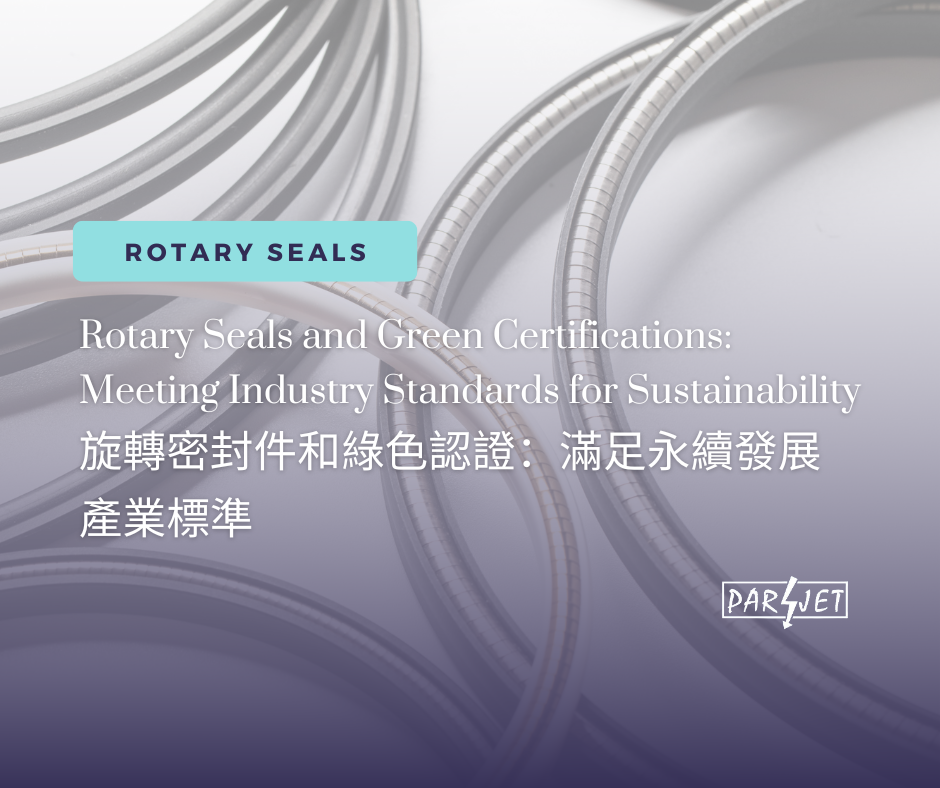
Rotary Seals and Green Certifications: Meeting Industry Standards for Sustainability
In today’s environmentally conscious era, industries are under increasing pressure to adopt sustainable practices and meet stringent environmental standards. As part of this, the role of rotary seals—small but critical components in industrial machinery—is evolving to align with the growing demand for sustainability. Rotary seal manufacturers and users are seeking green certifications and adhering to industry standards that demonstrate their commitment to reducing environmental impact and promoting sustainability. In this blog, we explore the relationship between rotary seals, green certifications, and how they help industries meet sustainability goals.
1. The Importance of Rotary Seals in Sustainable Operations
Rotary seals are used to contain fluids, gases, and other materials within rotating equipment, preventing leaks and maintaining efficient operations. Their contribution to sustainability goes beyond ensuring machinery works properly. They play a crucial role in:
- • Preventing hazardous leaks: By ensuring that harmful fluids or gases remain contained, rotary seals prevent pollution and reduce emissions.
- • Improving energy efficiency: High-quality seals reduce friction, allowing machinery to operate more efficiently and consume less energy.
- • Reducing waste: Durable rotary seals extend equipment life and minimize the need for replacements and maintenance, reducing material waste and the carbon footprint associated with manufacturing new parts.
2. Green Certifications for Rotary Seals
Green certifications help ensure that products, including rotary seals, meet certain environmental and sustainability standards. These certifications are becoming increasingly relevant as industries prioritize eco-friendly practices and look for ways to demonstrate their commitment to sustainability. Key certifications that relate to rotary seals and sustainable manufacturing include:
- • ISO 14001 (Environmental Management Systems): ISO 14001 certification is one of the most widely recognized standards for environmental management. It sets criteria for organizations to identify and control their environmental impact. Manufacturers of rotary seals who achieve this certification demonstrate that their production processes are environmentally friendly and meet global sustainability standards. It covers areas such as waste management, resource efficiency, and pollution prevention.
- • ISO 14064 (Greenhouse Gases reporting): ISO 14064 helps organizations to quantify, monitor, report and verify greenhouse gas (GHG) emissions and removals. This is part of a suite standard related to environmental management, focusing on climate change and GHG accounting. They help manufacturers of rotary seals to improve transparency, consistency, and accuracy in GHG management, making it valuable for companies seeking to reduce their carbon footprint, comply with regulatory requirements, or participate in carbon trading schemes.
- • RoHS (Restriction of Hazardous Substances): Rotary seal manufacturers adhering to RoHS guidelines limit the use of hazardous substances such as lead, mercury, and certain flame retardants in their products. Compliance with RoHS is important for companies looking to minimize the environmental impact of their products throughout their lifecycle.
3. Compliance with Industry Standards
Rotary seal manufacturers must adhere to a variety of industry standards that guide sustainable practices. Meeting these standards is essential not only for environmental compliance but also for competitive positioning, as more customers demand sustainability from their suppliers. Key standards include:
- • ASTM Standards for Seal Materials: ASTM (American Society for Testing and Materials) provides specifications for testing the performance and environmental impact of seal materials. Compliance with these standards ensures that rotary seals are made from high-quality materials that meet the durability, safety, and sustainability requirements of different industries.
- • API Standards (American Petroleum Institute): The oil and gas industry, in particular, has strict requirements for emissions control and environmental safety. Rotary seals used in this sector must comply with API standards, which include provisions for leak prevention, emissions reduction, and environmental protection. Seals that meet these standards are crucial for maintaining sustainable practices in high-emission industries.
- • European Union Directives: In Europe, manufacturers must meet regulatory requirements such as the EU REACH (Registration, Evaluation, Authorization, and Restriction of Chemicals) regulation, which governs the use of chemicals in manufacturing. Rotary seals that comply with REACH ensure that harmful substances are restricted, and production processes are more environmentally responsible.
4. How Rotary Seals Help Companies Meet ESG Goals
Rotary seals contribute to a company’s Environmental, Social, and Governance (ESG) goals in various ways:
- • Environmental Impact: As discussed, rotary seals help reduce emissions, prevent leaks, and improve equipment efficiency, all of which contribute to a lower environmental footprint.
- • Social Responsibility: Reliable rotary seals enhance worker safety by preventing hazardous leaks in industrial environments. This aligns with the social aspect of ESG, which focuses on creating safe and responsible working conditions.
- • Governance: Green certifications and compliance with sustainability standards ensure that rotary seal manufacturers are governed by ethical and transparent practices. Companies that meet these standards demonstrate strong governance in their production processes and supply chain management.
5. Future of Rotary Seals and Sustainability
As sustainability becomes more central to industrial operations, rotary seal technology will continue to evolve. Innovations such as self-lubricating seals, contactless seals, and seals made from biocompatible materials are likely to become more widespread, reducing the environmental impact of industrial equipment. Moreover, as industries increasingly embrace digital transformation, smart seals—which monitor performance and environmental conditions in real-time—could further enhance sustainability by predicting seal failures and preventing costly environmental damage.
Conclusion
Rotary seals are not just essential for mechanical performance; they are also key components in supporting sustainability efforts across various industries. By adhering to green certifications and industry standards, rotary seal manufacturers are helping businesses reduce their environmental footprint, improve energy efficiency, and meet stringent emissions regulations. As industries continue to prioritize ESG principles, the role of rotary seals in enabling sustainable operations will become even more critical.
At Parjet, we understand the importance of ESG and are in the process of obtaining ISO 14001 and ISO 14064. We also ensure that the products we offer are in line with industry compliance and continues to adapt latest practices to meet stringent environmental standards. For any inquiries, contact us here.





